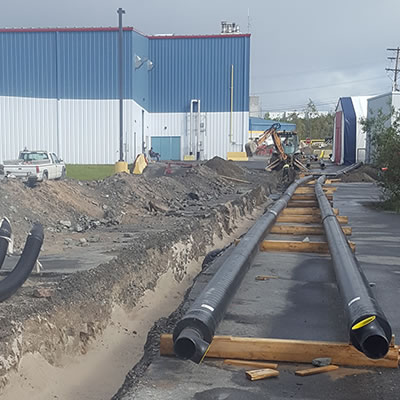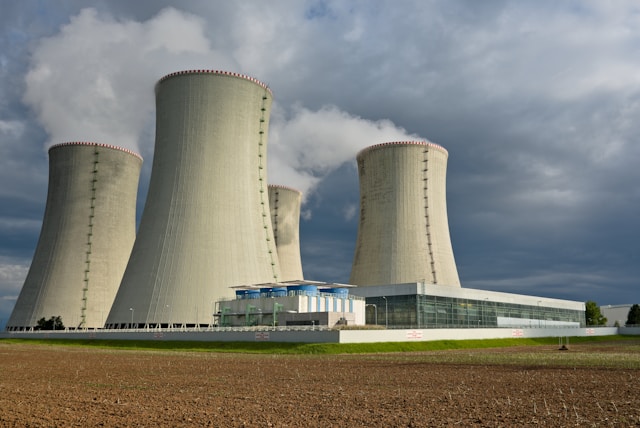Switch to biomass cuts costs and GHG emissions in Yellowknife

The innovative Biomass District Energy System in Yellowknife, NT, demonstrates that Northern communities can successfully reduce reliance on fossil fu
The innovative Biomass District Energy System in Yellowknife, NT, demonstrates that Northern communities can successfully reduce reliance on fossil fuels. — Photo courtesy City of Yellowknife, NT
Throughout Northern Canada, heating buildings is both essential and expensive. The region relies on costly fossil fuels that contribute to greenhouse gas (GHG) emissions. To address these issues for their community, the City of Yellowknife, NT, came up with an innovative solution: a Biomass District Energy System, shared by several buildings and fuelled by wood pellets. This heating system is expected to reduce GHGs by 829 tonnes a year, and save the City up to $160,000 annually.
Heating homes and buildings in Yellowknife accounts for more than 70 per cent of the community's energy consumption. The City needed to address heating to achieve their Corporate and Community Energy Plan target to cut GHG emissions in half by 2025 (from 2009 levels). The heating oil they relied on is GHG intensive, and shipped over long distances. So, they turned to biomass energy as a renewable energy source that is less polluting, and that has potential to be sourced locally. Anticipated annual GHG reductions represent 47% of the target in the City's energy plan.
Yellowknife's district energy system heats a group of five municipal buildings that previously consumed about 367,000 litres of heating oil a year. The switch to biomass is expected to lower GHGs by 829 tonnes of carbon dioxide equivalent (CO2e) a year, which is almost half of the City's GHG reduction target, and increase their corporate renewable energy use by 10 per cent. The City expects to see direct cost savings between $140,000 and $160,000 a year, and additional maintenance and operations savings are also expected.
Yellowknife's district energy system is an inspiration to other Northern communities looking for viable alternative energy sources. In fact, neighbouring building owners have already approached the City to discuss the benefits and challenges of implementing similar systems. The project will support a local wood pellet plant that is currently being developed, which will bring economic benefits to the region once it is up and running.
Want to develop a similar project in your community? This spring, we'll publish a video of the project team's presentation at FCM's 2018 Sustainable Communities Conference, along with a guide. Sign up for our newsletter and be the first to hear when they are available.
FCM's Sustainable Communities Awards recognize and celebrate sustainability leaders and trailblazers in municipalities of all sizes across Canada.



